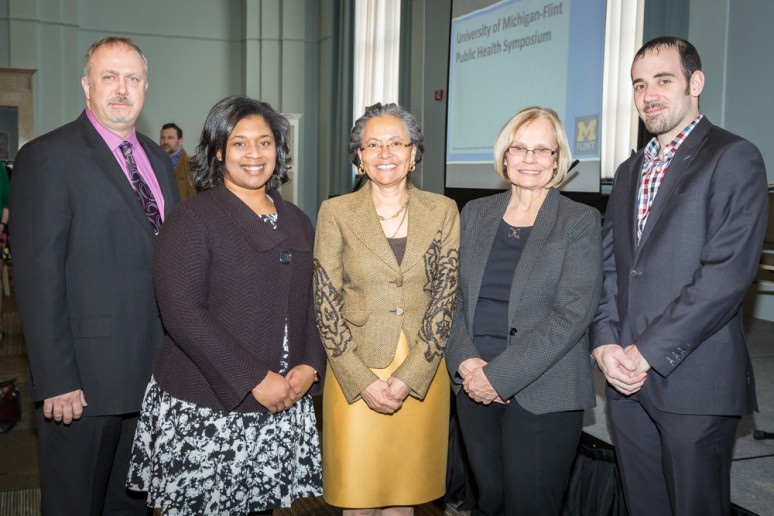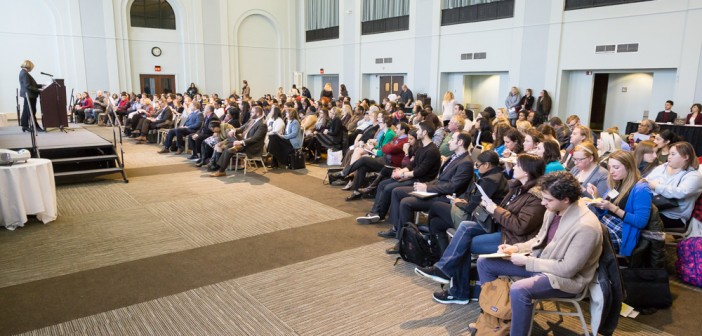FLINT, MI – A Public Health Symposium was held on March 15, sponsored by the University of Michigan-Flint and the Healthy Flint Research Coordinating Center. The event’s purpose was to highlight public health issues that affect Flint and Genesee County. The symposium was made possible through the Myron and Margaret Winegarden Endowed Visiting Professorship Fund.
One of the speakers at the informative event was Kay Doerr, Chairperson of the Genesee County Health Department, who spoke about Tobacco 21 as a health equity issue. The Genesee County Board of Commissioners voted in February to raise the age a person can purchase tobacco products to 21, and it will take effect in May. It was reported that raising the minimum age of sale is an effective way to reduce youth tobacco use and prevent lifelong addiction.
 An update on Genesee Health Plan was presented by President and CEO, Jim Milanowski. “There has been a tremendous effort in our community to provide health care for uninsured,” he said. “We are just waiting to see how the national health care plan will affect our community.”
An update on Genesee Health Plan was presented by President and CEO, Jim Milanowski. “There has been a tremendous effort in our community to provide health care for uninsured,” he said. “We are just waiting to see how the national health care plan will affect our community.”
Dr. Rick Sadler, Assistant Professor at Michigan State University gave a presentation on reducing traffic fatalities by building more roads than cars.
Dr. Vickie Johnson-Lawrence spoke about the Flint Resiliency in Communities After Stress and Trauma (ReCAST) grant. In 2016, Flint was awarded a five-year grant by the Substance Abuse and Mental Health Services Administration (SAMHSA). The Flint ReCAST Program promotes resilience in the community by supporting youth and families, mitigating the impact of trauma, reducing behavioral health disparities and increasing opportunities and training for Flint youth through strong community engagement strategies. “It primarily focuses on empowerment, trauma-informed approaches and resilience,” she said. “The future of Flint is based on moving forward as a connected community, and we can help with that.”
The subject of Dr. Camara Jones’ presentation was “Social Determinants of Health.” She is the Visiting Professor and Past APHA President in Flint. Her focus was on achieving health equity and the impact of racism on the nation’s health and well-being. “The definition of health equity is ‘assurance of the condition for optimal health for all people,’” said Dr. Jones. “Achieving health equity requires valuing all individual and people equally, recognizing and rectifying historical injustices and providing resources according to need.”
Speak to Your Health! Community gave an overview of their 2015/2016 Community Survey regarding issues such as nutrition, health, water quality and safety.
Photos provided by U of M – Flint








